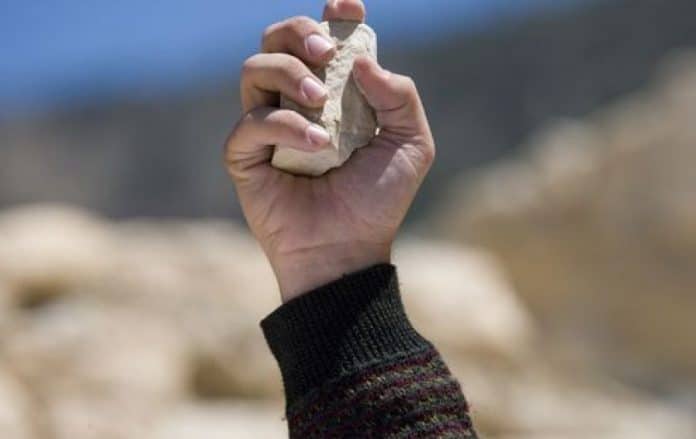by Andrew Wolfenbarger
I fight it constantly – the innate ability to see fault in others. I would say that we are all pretty skilled at this. What makes this feeling worse is that this ability is often accompanied by another unremarkable skill of choosing to ignore our own faults and failures. While we are all keenly aware of our faults, it feeds our pride when we can clearly see the failures of others.
One of the most amazing stories of the Bible that puts on display the immense grace of the Lord is that of the woman who was taken “in the very act” of adultery. The scribes and Pharisees brought this lady who could not have been more guilty. Instead of passing condemnation upon this woman, the Lord challenges the intentions of the supposed religious men. He says in John 8:7, “…He that is without sin among you, let him first cast a stone at her.” Let us consider the failures of these men and the process by which our Lord handled this situation so that we might be more like Him and less like the pseudo-religious men.
The Failures of the Religious:
-
They found it easier to condemn those they did not value.
Have we ever considered that there was another person with the woman who was taken in the act of adultery? However, the Pharisees only brought this poor lady. Where was the other person who was guilty? Did he escape while they tried to detain him? I highly doubt it. It would appear that these men only had an interest in condemning the woman. It is common knowledge that this cultural climate would have been very male chauvinistic. It seems as if these religious men were more willing to overlook the faults of someone that they saw as their equal than someone who they appeared to look down upon.
Similarly, we extend the benefit of the doubt to certain sins with which we struggle. Also, if we can understand the circumstances of a particular sin, we are much more willing to excuse those sins. This is only proof that we are not qualified to pass judgment. We are biased beyond belief.
-
They brought the problem into the church.
John 8:2 tells us that Jesus “…came again into the temple,…” There he was, teaching the people, and in the middle of His lesson, this woman was thrown down center-stage. It is amazing how that throughout the Bible we see that religion very rarely makes men better. For instance, in the story of the good Samaritan, it was the religious people that passed by the stranger who lay beaten and left for dead in the center of the road. As we know, a Samaritan is not a denomination or religious belief structure. It is a nationality, as in, someone who is from Samaria. Throughout Scripture, we learn that many Israelites considered themselves superior due to their lineage. However, the Samaritan was the man who showed compassion towards this stranger. Religion had done nothing for these men who passed by the stranger. At the least, it did nothing to make them act more like our merciful God.
Sadly, if our Christian experience is more religious than relational, we become very susceptible to this type of mindset. The church house is no place for a critical spirit towards others. They may not deal with the same problems that we do, but we all deal with problems. We all have the sins that “…so easily beset us,…” While this does not mean that we have a permit to stand in judgment towards people at other places in life, we should be extra cautious with our attitudes towards those who are of the household of faith.
-
They did not fully consider the ramification of their actions.
Without going into too much detail, just imagine how terrible it must be to watch someone die by the method of stoning! I understand that it was a different time and place. I also realize that these men thought that they were performing a religious service for God. In their own minds, they felt as if they were the police of God’s kingdom. Also, from their perspective, they were acting in accordance with the Law of Moses. Still, I cannot imagine getting to the place of being so zealous and so passionate in desire to see someone die in this manner. Actions like this are permanent. We cannot take something like this back. The moment a stone connects with the exact right spot, this action can never be undone. Oftentimes, we do not take into account how permanent the words are that we say and the attitudes we exhibit towards those upon whom we pass judgments. While it may not be a matter of life and death as it was in this lady’s case, our perceptions can become solidified. It is hard to change the way we feel about a person. Plus, when we arrive at these conclusions, we would then have to battle things such as gossip, hatred, and malice.
We need to be so careful with the way that we bring others to the feet of Jesus. These people threw her down with a spirit of accusation and criticism. What if instead of bringing them to Jesus in this spirit, we would bring them to Him with a spirit of concern and restoration?
Being the lookout for everyone else’s failures is not the barometer of our spiritual maturity. Our willingness and ability to restore a fallen brother is.
“Brethren, if a man be overtaken in a fault, ye which are spiritual, restore such an one in the spirit of meekness; considering thyself, lest thou also be tempted.“ – Galatians 6:1


